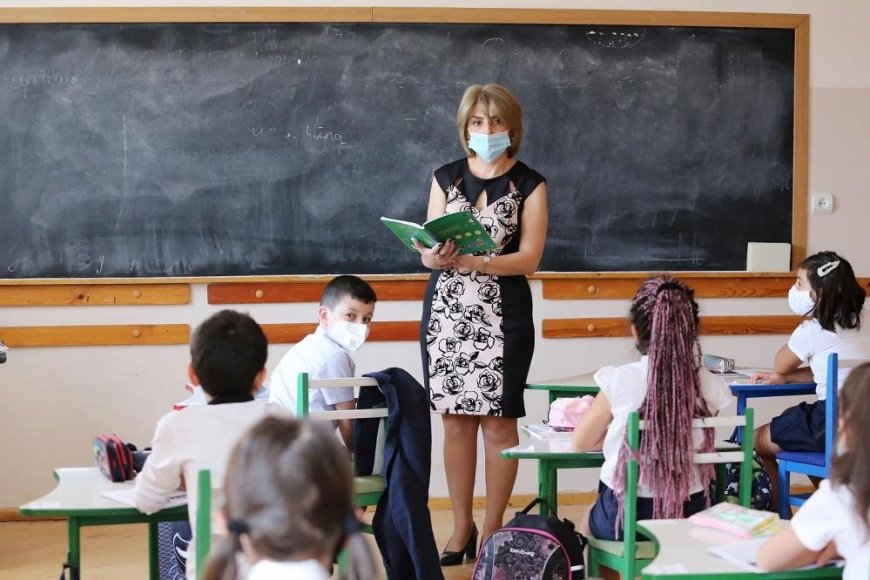Changing schools - how does it affect your little ones?
Changing schools is associated with a complex adaptation process, in which a child has to face the fear of the unknown. Most likely,

Changing schools is associated with a complex adaptation process, in which a child has to face the fear of the unknown. Most likely, he will experience many emotions such as insecurity or anxiety. They can make him feel helpless in the face of such a new situation.
If you are planning to modify your child's education, think first about how the change of school might affect them. These reorganizations can lead to new development opportunities, but your little one will need your help to adapt to the new environment.
The role of parents in the face of the changes that have occurred
Change is a normal part of life as it confronts us with our fears and doubts. Due to their inexperience, children do not have the capacity to assess or assess the situation they are experiencing.
For this reason, parents should support and prepare them to face change with 100% confidence.
However, you must understand that each child will have their own way of expressing the uncertainty caused by this new circumstance. You have to pay attention to all the toddler's reactions.
In addition, parents must be willing to help and cooperate. Mom and Dad represent their children's stability, so they are responsible for adapting them to change.
How Does Changing School Affect Children?
As a mother, you have experienced all sorts of changes throughout your life. These changes include jobs, friendships, homes and even new doctors. In this sense, you realize that all the modifications that occur in life affect children and cause them to worry.
It is not easy for children to go through this period of instability and insecurity. They can experience many emotions such as nostalgia, anger, frustration, fear, pessimism, sadness, and joy.
Among the changes they will encounter are:
- Making new friends and distancing yourself from old ones.
- Adaptation to other teachers and possible new teaching methods.
- Engaging in unfamiliar surroundings or a new climate.
- Being the center of attention due to being the new kid in the classroom.
- Using different means of transport and getting used to new routes.
Some children may be very resistant to change, while others may appear positive, flexible and very adaptable to their surroundings. The more drastic the change, the more resistant a child can become.
Of course, we cannot accurately measure the degree of impact that a change of school may have on every child. There are several factors at stake - for example what your child leaves behind and what he will find in his new school.
Must Read: Alpha generation: everything you need to know
However, if your child manages to make new friends quickly, the changes are likely to be more bearable. Remember that your child's learning performance may deteriorate at first.
Changing a child's school - how to reduce its effects?
Here are few suggestions you can follow to help your child face this change:
Communication and honesty
When you know that the decision to change schools is irreversible, you must notify your child as soon as possible. Talk to him openly and give him the opportunity to express your fears and uncertainties. Remember that he can be aloof and negative.
Don't lie to him by making him believe that you will protect him from the effects of change. Sooner or later, he will realize that he has to face them on his own.
Help him see this change in a positive way
Changing schools will give your child the chance to start all over again and make new friends. Help him enjoy the change instead of suffering with him.
Visit the school first
By visiting the school first, your child won't feel confused when they go to class for the first time. Check them out with all the amenities. If possible, show your child your new classroom, library, cafeteria and gym.
Prepare your child for the first day of school
Preparation is the best option. The more you keep your child informed, the better for both of you. Explain when classes begin and when classes end, who their teachers will be, and so on.
Enroll your child in extracurricular activities
A quick way to integrate your child with other students outside of school hours is to allow them to participate in extra-curricular activities. Ask him to join a sports team he likes, such as soccer, basketball, or volleyball. If he is fond of art, you can enroll him in music, painting or acting classes.
Finally, you need to be patient and give your child time to adjust to the change. This will make your child experience various new things for himself, and it will contribute to his maturity.
If you respect his space and give him faith in his new circumstances, you will help strengthen his self-esteem and security. So changing schools will be a positive experience.
